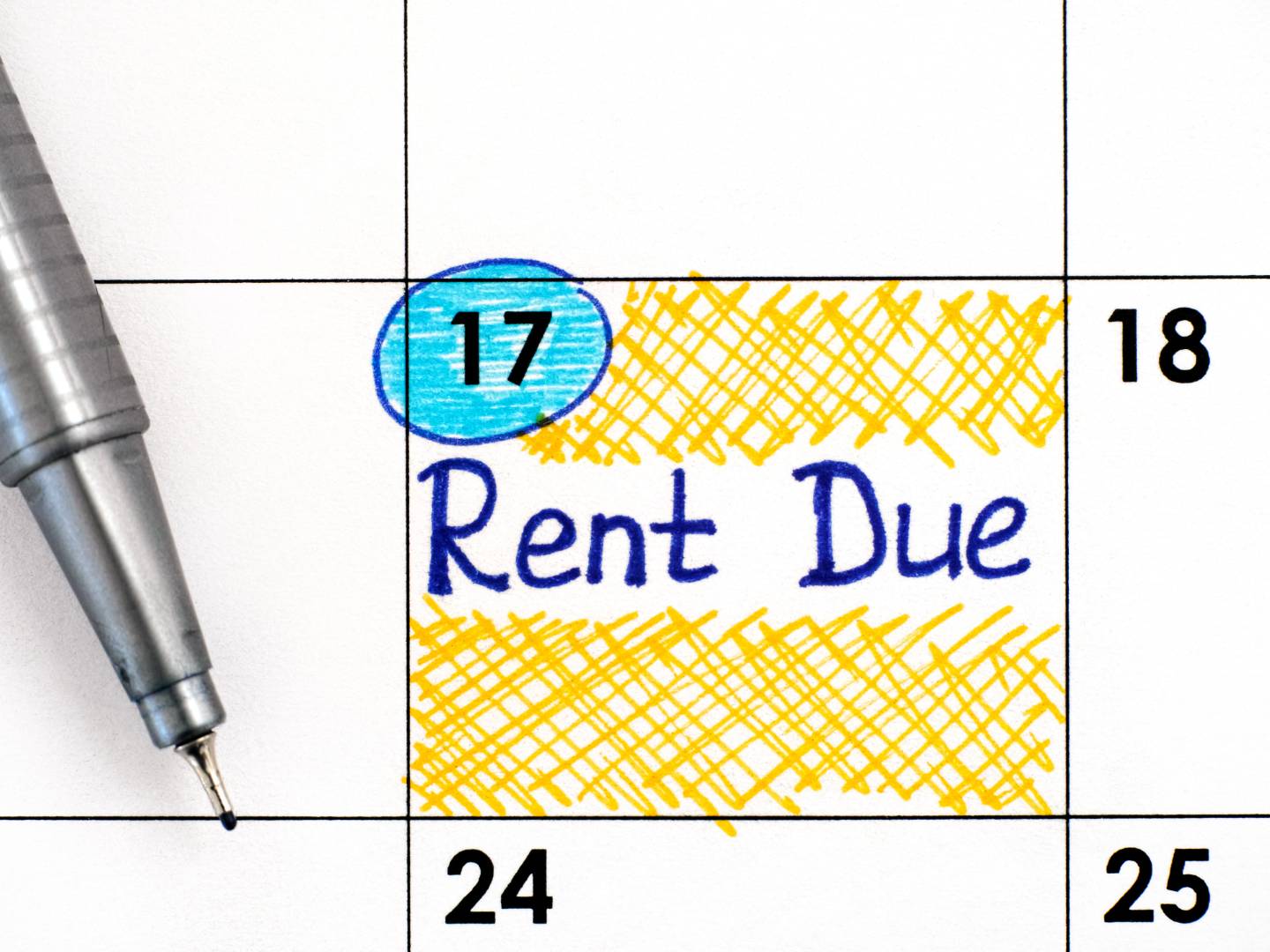Top 3 landlord problems and how to deal with bad tenants
Rent arrears, damaged property and disruptive behaviours are the 3 most common landlord problems. Discover expert tips on how to handle them!
Angelina
One of the biggest challenges that landlords face is dealing with bad tenants. Problems with tenants can range from minor issues, such as late rent payments, to major problems, like intentional damage to your property. These issues can lead to landlord-tenant disputes and cause significant financial and legal problems. And ultimately, having a bad tenant can impact the rental property's return on investment (ROI).
This article will explore the 3 most common landlord problems and discuss how to deal with bad tenants. You'll also discover tips on preventing these issues from occurring in the first place, helping you maintain a positive and profitable landlord-tenant relationship.
Tenant not paying rent
Late or missing rent payments can be a significant problem for landlords. That's why it's crucial to have a clear and enforceable lease agreement that outlines the consequences of non-payment.
If a tenant doesn't pay rent, the first step is to try to talk with them to understand the situation. Sometimes, tenants may have a legitimate reason for not paying, such as financial hardship or unexpected expenses. If so, you can work out a payment plan or make other arrangements.
However, suppose the tenant refuses to pay or is consistently late with rent payments. In that case, you may need to take legal action.
In the UK, landlords have several options for dealing with tenants who don’t pay rent:
-
Send a formal letter: If your tenant hasn’t paid after you talked to them, send a letter explaining the legal consequences of not paying the rent. If the problem persists after 14 days, send another reminder. If they still haven’t paid after 21 days, send a reminder again.
-
Use an online rent payment system: It takes a lot of energy to remind your tenant to pay rent. You can save the hassle of rent collection by using an online rent payment system like the one on HousingAnywhere. Simply create your payment plan and leave the rest to us!
-
Take legal action: If rent is paid monthly, you can take legal action once it’s been over 2 months that the tenant hasn’t paid. Section 8 notice for rent arrears (Ground 8) gives the tenant a notice period within which they must pay the outstanding rent or vacate the property.
For weekly or fortnightly rent, you can serve Section 8 notice after 8 weeks of arrears. And for quarterly or annual rent, it's 3 months of arrears.
-
Apply for a possession order: If the tenant does not pay rent or vacate the property after the Section 8 notice has expired, you can apply to the court for a possession order. This legal process can take several weeks or even months, so it's essential to have a contingency plan in place.
-
Consider using a debt collection agency: If the tenant owes you a significant amount, you may want to work with a debt collection agency to recover the debt. This can be a more cost-effective option than pursuing legal action. This method might harm the tenant's credit score.
Tenant damages property
Tenants may cause damage to the property, either intentionally or unintentionally. To deal with this issue, landlords should conduct regular inspections and promptly address any damage that is found. It's also important to have a security deposit in place that can be used to cover repair costs.
When a tenant damages your property, here are some steps you can take:
-
Document the damage: Take photos or videos of the damage as evidence. This will help prove the extent of the damage and the cost of repairs.
-
Assess the damage: Get a professional assessment of the damage and estimate the repair costs. This will help you determine the amount of compensation you should seek from the tenant.
-
Communicate with the tenant: Contact the tenant to inform them of the damage and the cost of repairs. Ask them to pay for the repairs or provide compensation for the damage. If the tenant admits fault and agrees to pay, you can devise a payment plan or other arrangements.
-
Deduct the costs from the security deposit: If you have a security deposit in place, you can deduct the cost of repairs from that sum when the tenant moves out. However, you must provide the tenant with an itemised list of the deductions.
-
File a claim with the small claims court: If the tenant refuses to pay for the damage or the cost of repairs exceeds the security deposit, you can file a claim with the small claims court. Make sure to have evidence and documentation to prove the tenant's liability.
-
Evict the tenant: You can serve a Section 8 notice if the damage is severe and provides a valid 'grounds for possession'. If the tenant doesn’t vacate the premises within the notice period, you can apply to the court for a possession order.
-
Offer cash for keys: Sometimes, a better option might be to try to get rid of the tenant before they cause further damage. You can offer your tenant a sum of money to leave your property. Often this can be a considerably quicker and cheaper fix than advancing eviction proceedings.
Reduce the costs of repairs by properly insuring your rental property.
In any case, it's important to follow the legal procedures in your area and keep accurate records of all communication and expenses related to the damage. It's also recommended to seek legal advice from a solicitor or housing association to ensure that you follow the correct procedures and comply with all legal requirements.
Disruptive behaviour
Tenants who engage in disruptive behaviour, such as excessive noise or illegal activities, can create problems for other tenants and neighbours. Your tenancy contract must clearly specify rules prohibiting disruptive behaviour to prevent such issues. If a tenant violates these rules, you can take legal action, such as issuing warnings or evicting the tenant.
Here are some steps you can take when dealing with a tenant displaying rude or asocial behaviour:
-
Document the incident: Record any incidents and gather evidence, such as witness statements or police reports. This will help prove the tenant's behaviour and take appropriate action.
-
Talk to the tenant: Contact the tenant to discuss their behaviour and inform them that it is unacceptable. Ensure they know the terms of their tenancy agreement and any legal implications of their actions.
-
Issue a warning letter: Send a warning letter to the tenant outlining the unacceptable behaviour and the consequences if it continues. Keep a copy of the letter for your records.
-
Involve the police: If the tenant engages in illegal activities, contact the police immediately. They can investigate the matter and take appropriate action.
-
Terminate the tenancy agreement: If the behaviour continues despite warnings, you may be able to serve a Section 8 eviction notice on Ground 12 or 14. If the tenant doesn’t leave, you can apply to the court for an order of possession.
What's a bad tenants database?
A bad tenants list is a database of tenants who have exhibited problematic behaviour in rental properties. Some landlords and property managers use these lists to screen potential tenants and avoid renting to individuals with a history of inappropriate behaviour.
However, using bad tenant lists is illegal in the UK.
Information on such lists is subject to data protection laws and regulations.
Instead of relying on a list, carefully screen your potential tenants and perform credit checks. On HousingAnywhere, screening tenants is easy and can be done right from the comfort of your couch! Join today and start getting requests from tenants that fit your criteria.
This article is for informational purposes only. Please consult the appropriate authorities or a lawyer for legal advice.
For feedback on this article or other suggestions, please email content@housinganywhere.com
Related articles
In this article
Picking the wrong tenant is a costly mistake
When tenants don’t pay rent on time, end the tenancy abruptly, damage your property, or cause nuisance, it costs you time and money.
Find reliable tenants

